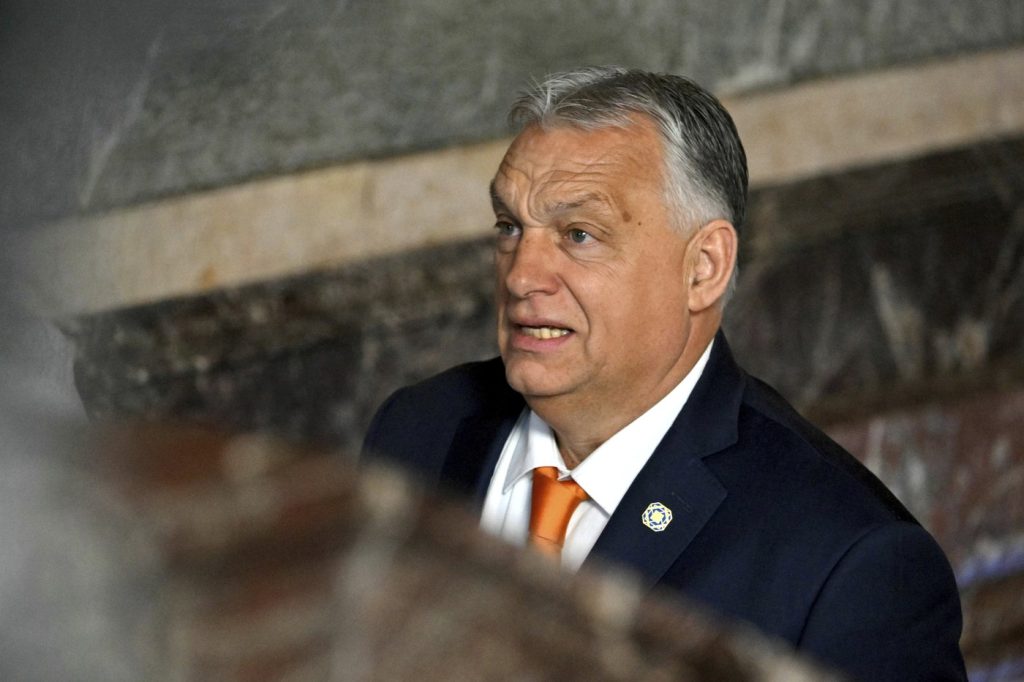KYIV, Ukraine (AP) — Hungarian Prime Minister Viktor Orbán stated that Hungary would be the deciding factor in whether Ukraine can achieve its aspirations of joining the European Union. This was highlighted during his annual State of the Nation address on Saturday in Budapest, where he reiterated his adversarial stance towards Ukraine amid the ongoing conflict instigated by Russia.
Orbán characterized Ukraine as a "buffer zone" between NATO countries and Russia, predicting that even after the end of the conflict, Ukraine would continue to play this role, contrary to its ambitions of NATO membership. He asserted, "Against the will of Hungary and the Hungarians, Ukraine will never be a member of the European Union," emphasizing concerns over the potential negative impacts on Hungarian agriculture and the national economy due to Ukraine's accession to the EU.
The prime minister noted that unanimous consent from all EU members is necessary for new members to join. Orbán, often perceived as the closest ally of the Kremlin within the EU, has obstructed the bloc's efforts to support Ukraine in its defense against Russia's invasion that began almost three years ago. While Hungary has accepted Ukrainian refugees, it has also blocked financial assistance to Ukraine from the EU and sought stronger economic ties with Moscow despite the war.
Orbán cast doubt on Ukraine's sovereignty, suggesting that the conflict was less about Ukraine itself and more about the territory being integrated into NATO's sphere of influence. He reiterated the notion that "Ukraine, or what remains of it, will again become a buffer zone," further asserting that Ukraine would not become a member of NATO.
His comments parallel those from members of former U.S. President Donald Trump’s administration, who have implied that Ukraine should abandon its NATO membership aspirations for future security guarantees against Russian aggression. Orbán, an ally of Trump, has supported dismantling the U.S. Agency for International Development (USAID), claiming—without evidence—that it funded liberal movements in Hungary to undermine his government.
In addition, Orbán promised repercussions for NGOs, media outlets, and rights organizations that have benefited from USAID, pledging to eliminate such entities in Hungary while pursuing "legal consequences." During the address, he reiterated his government's policies against civil society and LGBTQ+ groups, declaring the intention to send a commissioner to the U.S. to gather information on Hungarian organizations receiving USAID funding.
Asserting the need for legal frameworks to curb "foreign interests," Orbán suggested revisiting Hungary's Constitution, which was unilaterally drafted by his party in 2011. He proposed that it include a definition of gender as strictly binary—either a man or a woman—and indicated potential measures to prohibit the LGBTQ+ Pride parade planned in Budapest this summer, warning against the potential efforts of the parade organizers.
Orbán's rhetoric and policy positions reflect a continuing trend of nationalism and resistance to Western influences, positioning Hungary as a determinant in the geopolitical dynamics surrounding Ukraine's future, particularly in context to EU and NATO membership aspirations.










